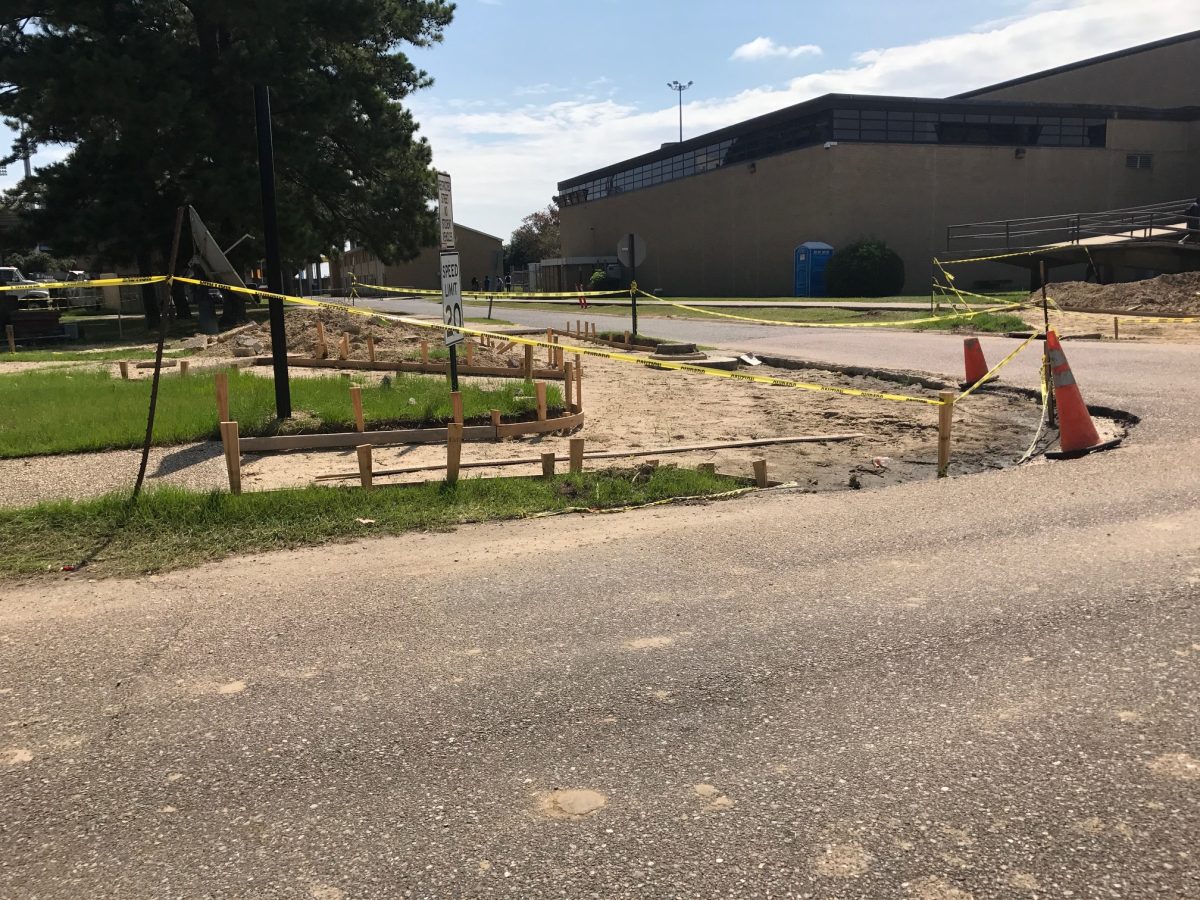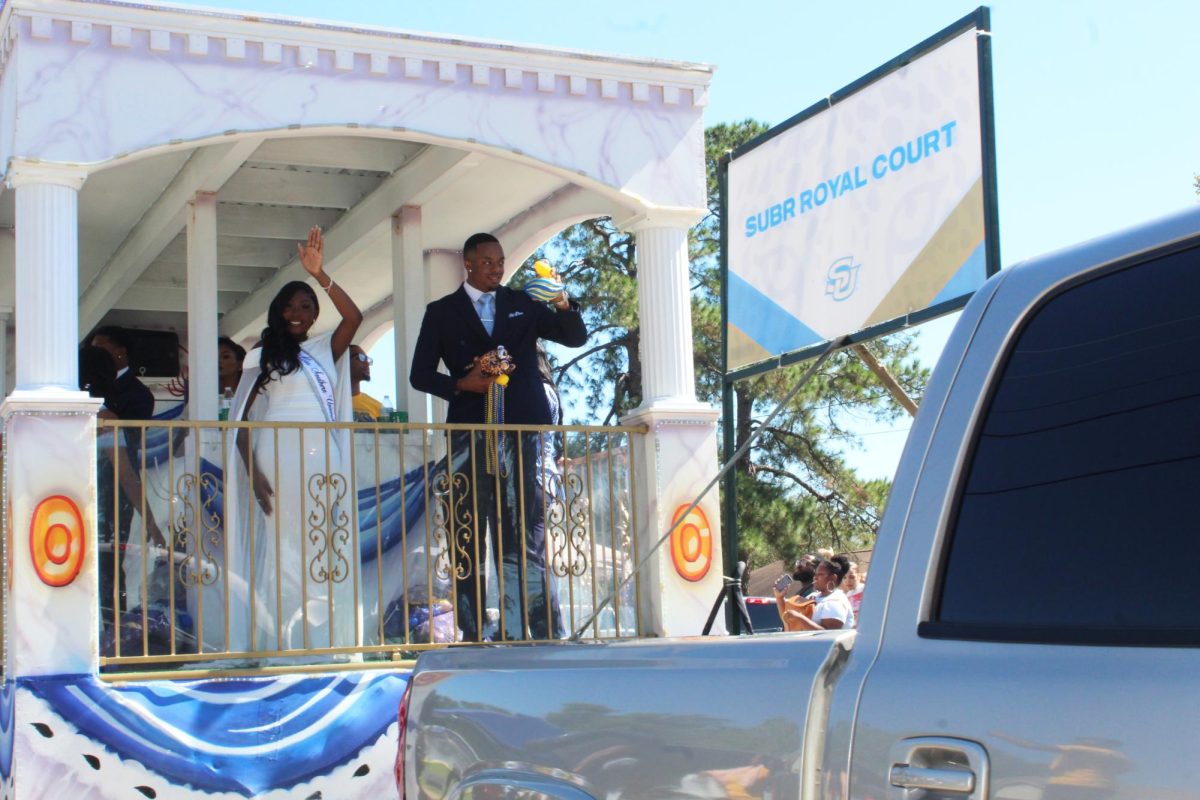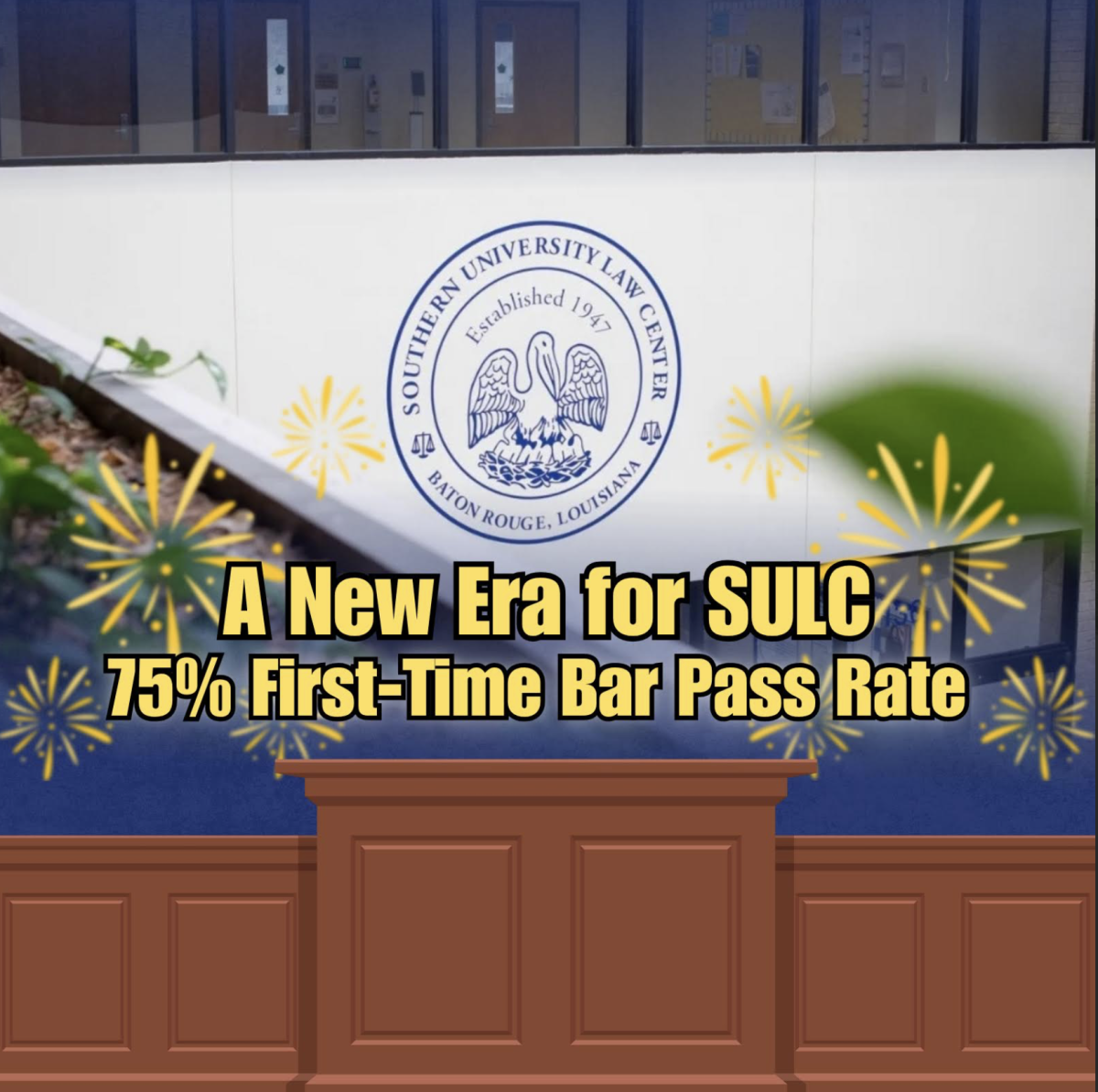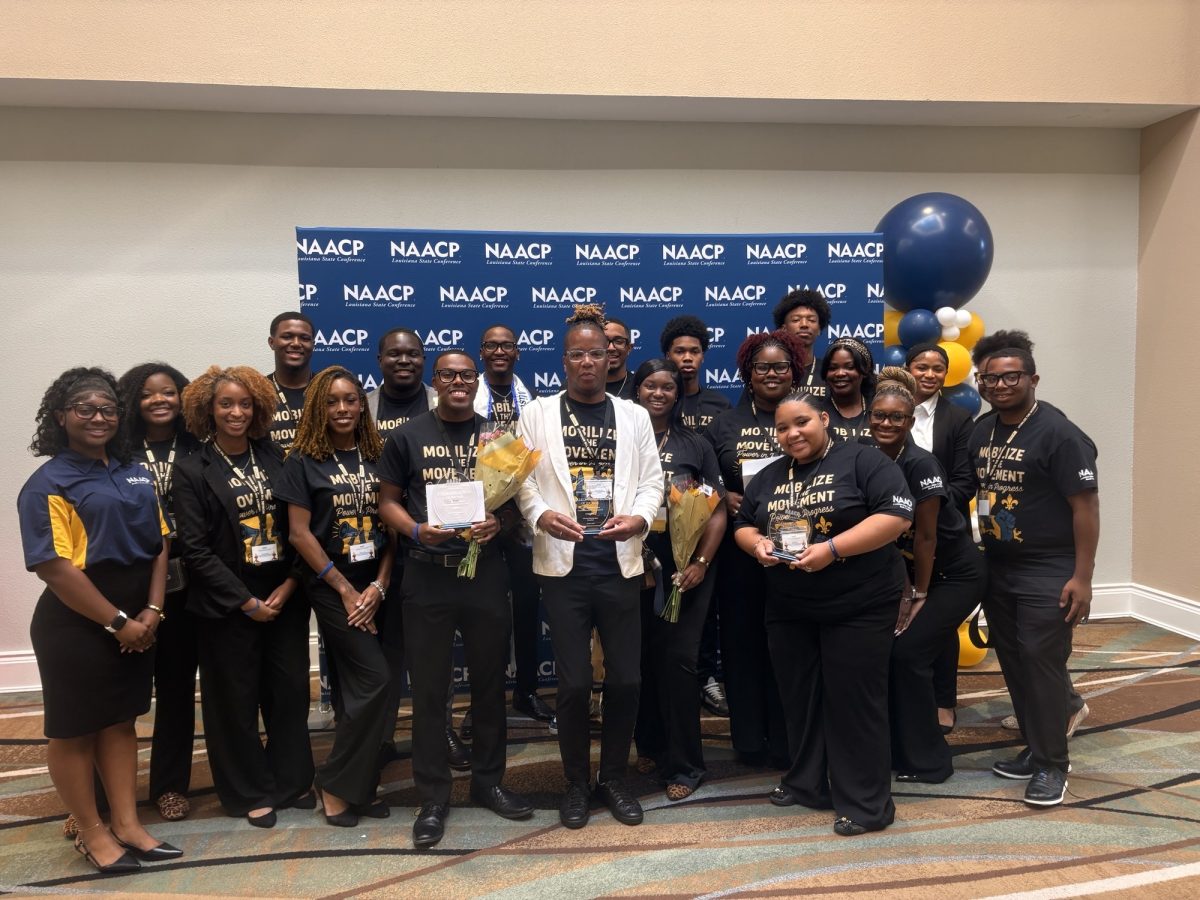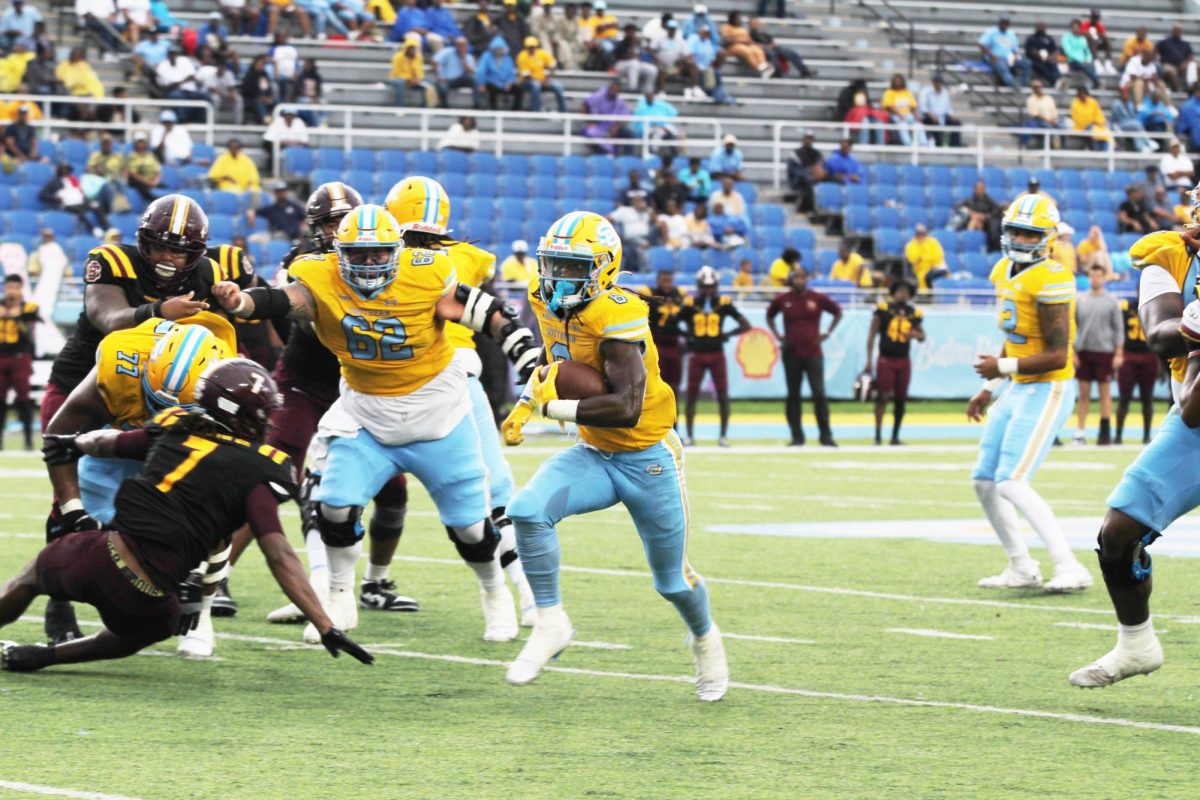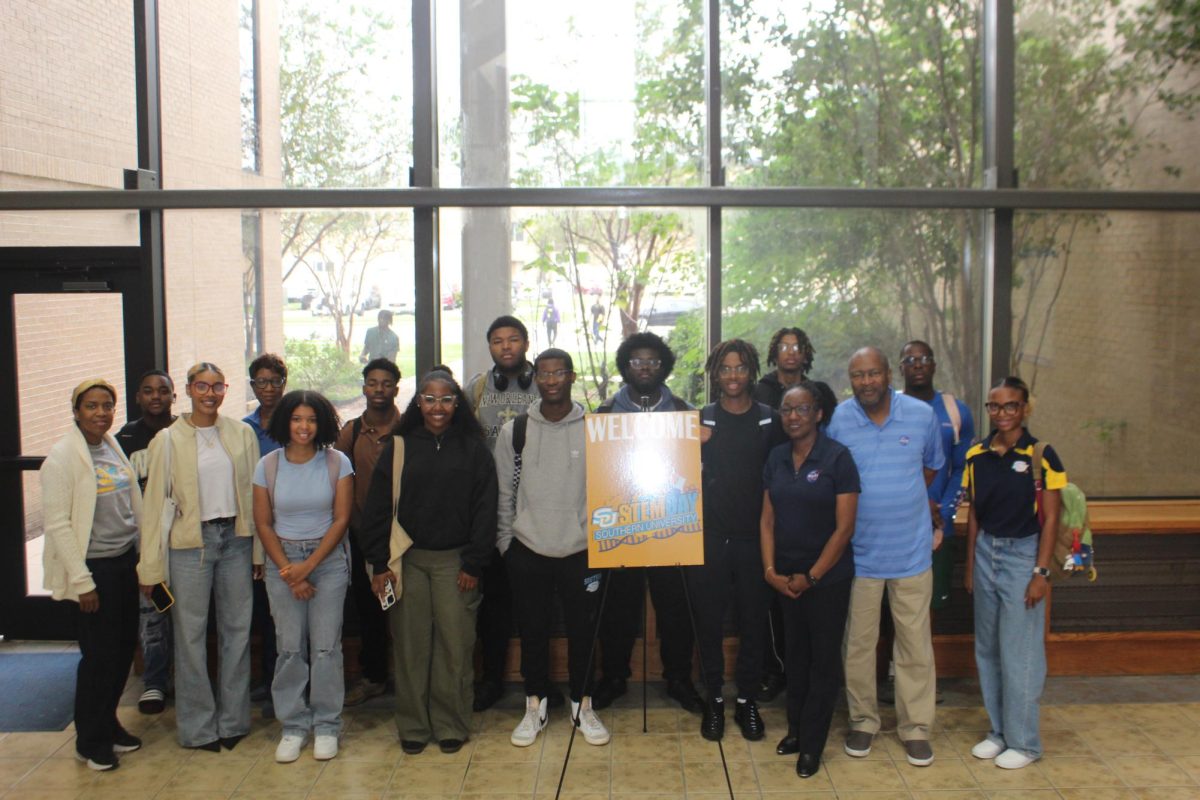The sidewalks along E.C Harrison Street are currently under construction on the Southern University Baton Rouge Campus (SUBR) as the result of a federal lawsuit filed by a former disabled student.
After complaints that the University was not handicap accessible, Kayla Williams, sued the University in 2011 and won the case after a federal judge placed the University under a Federal Consent Decree.
The decree was a settlement that resolved the dispute between the two parties and its effects are being felt in 2017 as SUBR will now begin to operate under and adhere to the Americans with Disabilities Act (ADA).
According to ada.gov, “the ADA is a civil rights law that prohibits discrimination against individuals with disabilities in all areas of public life, including jobs, schools, transportation, and all public and private places that are open to the general public.”
Repairing sidewalks and slopes and rebuilding ramps, in addition to overlaying the street with new asphalt for handicap accessibility are all results of the consent decree.
According to an article published by The Advocate in 2014, the lawsuit “took particular issue with the lack of accessible restrooms, elevators and ramps with adequate slope at athletic venues, among other problems.”
The Title III funded project, named “ADA upgrades to E.C. Harrison Street” extends from Harding Boulevard to Jesse Stone Street.
Title III Infrastructure Director, Kestee Weir III, says that the bidding process took nearly a year, and as a result, the project start date was July 24, 2017.
“The emphasis on the project is that we’re looking at E.C. Harrison as the main academic corridor for the campus, however, it was not accessible in any way or the proper way for handicapped students,” said Weir.
“If we go in to renovate any existing building on the campus or if any new buildings are built on the campus, we have to make sure that they comply with ADA code requirements,” Weir went on to say.
Every contractor in the state of Louisiana had the opportunity to bid on the project. The contractor with the lowest bid was awarded the project after a 30 day period.
The Luster Group, a company owned by Southern University alumni member, Floyd Luster Jr., was awarded the project.
At a total of $300,088, Luster says that his company has four months to complete the project with an expected completion date of November 12, 2017.
“A lot of those sidewalks were not ADA compliant to wheelchair accessibility and alot of them were damaged as well,” Luster explained.
Inclement weather plays a role in the prolonging of the construction and with Hurricane Harvey expecting to bring in an abundance of rain, both Weir and Luster have already anticipated a December completion date.
As a proud alumnus, Luster did admit that he was trying to expedite the process.
Because a majority of the class buildings are housed along E.C. Harrison Street, Luster said he is working with his employees to reduce the inconvenience to students and faculty members as much as possible.
The 2014 article from The Advocate goes on to state, “Williams claimed in her lawsuit that classroom desks weren’t suitable for wheelchairs and she couldn’t access the restrooms in the building where most of her classes were held to empty her catheter bag because they did not accommodate wheelchairs.”
An engineering firm was hired to draft the designs and blueprint for the construction. A contract was then drafted and a purchase order had to be reviewed, allowing the engineer to begin the design process which can take anywhere between four to six months.
After the design process, the bidding and construction can begin, having to make time for each contract to make its way through the proper chain of command, adding months onto the project. The bid process was finally able to begin at the end of the summer, which then initiated construction.
Proper procedure must be followed during the construction period as well to make sure that the concrete is laid in the proper manner and proper specifications for soil are met.
Senior Mass Communications major and Baton Rouge native, Deborah Coleman stated that the repairs were necessary.
“Even though the sidewalk repair is a hassle, I feel it was needed and hopefully they fix the roads next,” Coleman said.
Updates on the progress of construction will be provided, as they are made available.
Categories:
The Demolition Debacle: Students caught off guard by lengthy sidewalk construction
August 31, 2017
0
More to Discover
